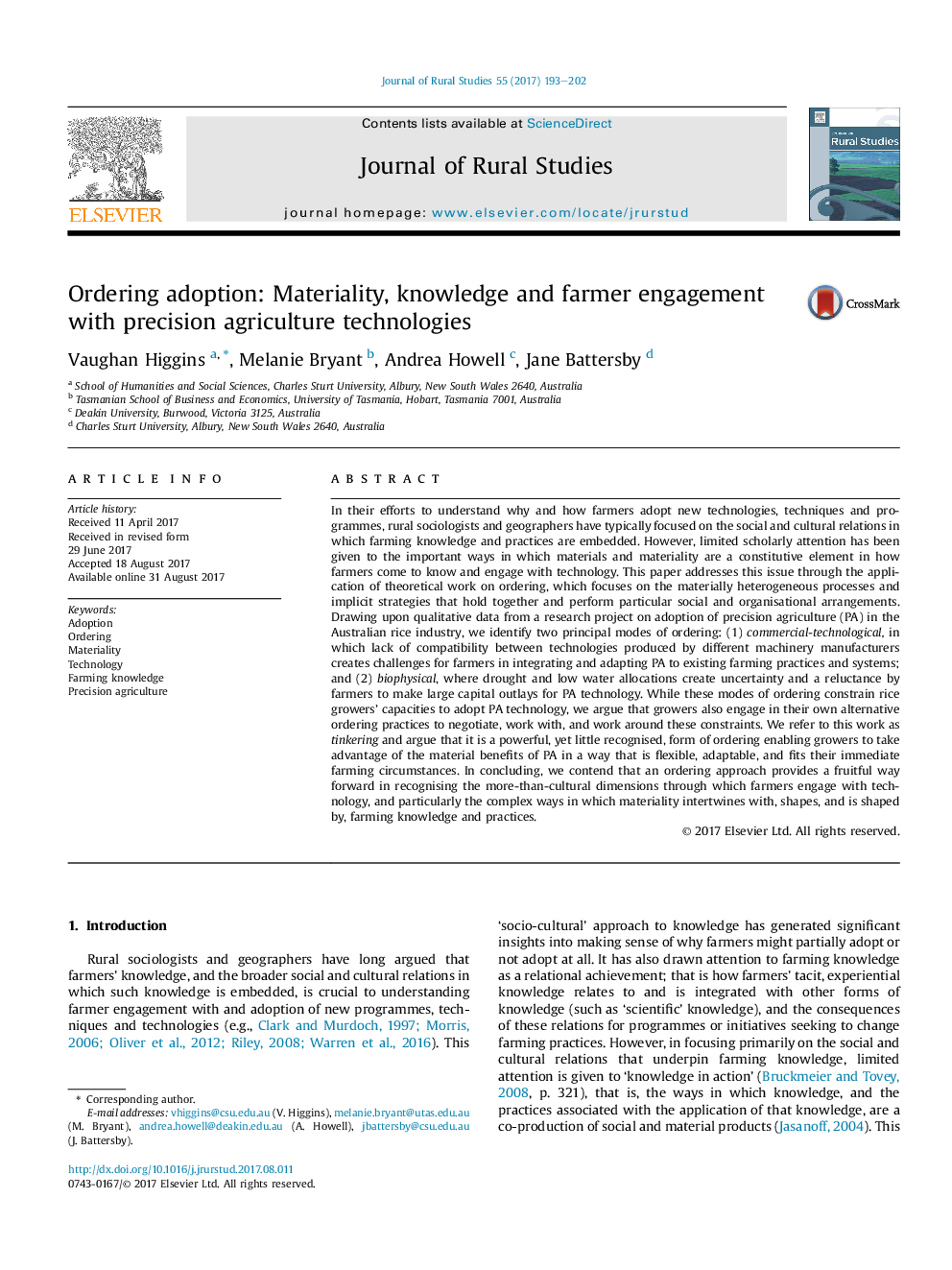| کد مقاله | کد نشریه | سال انتشار | مقاله انگلیسی | نسخه تمام متن |
|---|---|---|---|---|
| 6459948 | 1421776 | 2017 | 10 صفحه PDF | دانلود رایگان |
- Materiality is a constitutive element in how farmers come to know and engage with technology.
- A focus on ordering enables recognition of how materially heterogeneous processes intertwine with farming knowledge.
- Commercial-technological and biophysical modes of ordering impose constraints on precision agriculture (PA) implementation.
- Growers engage in alternative ordering practices, referred to as tinkering, to work with, and around, these constraints.
- Tinkering enables growers to take advantage of PA in a way that is flexible and accords with their farming circumstances.
In their efforts to understand why and how farmers adopt new technologies, techniques and programmes, rural sociologists and geographers have typically focused on the social and cultural relations in which farming knowledge and practices are embedded. However, limited scholarly attention has been given to the important ways in which materials and materiality are a constitutive element in how farmers come to know and engage with technology. This paper addresses this issue through the application of theoretical work on ordering, which focuses on the materially heterogeneous processes and implicit strategies that hold together and perform particular social and organisational arrangements. Drawing upon qualitative data from a research project on adoption of precision agriculture (PA) in the Australian rice industry, we identify two principal modes of ordering: (1) commercial-technological, in which lack of compatibility between technologies produced by different machinery manufacturers creates challenges for farmers in integrating and adapting PA to existing farming practices and systems; and (2) biophysical, where drought and low water allocations create uncertainty and a reluctance by farmers to make large capital outlays for PA technology. While these modes of ordering constrain rice growers' capacities to adopt PA technology, we argue that growers also engage in their own alternative ordering practices to negotiate, work with, and work around these constraints. We refer to this work as tinkering and argue that it is a powerful, yet little recognised, form of ordering enabling growers to take advantage of the material benefits of PA in a way that is flexible, adaptable, and fits their immediate farming circumstances. In concluding, we contend that an ordering approach provides a fruitful way forward in recognising the more-than-cultural dimensions through which farmers engage with technology, and particularly the complex ways in which materiality intertwines with, shapes, and is shaped by, farming knowledge and practices.
Journal: Journal of Rural Studies - Volume 55, October 2017, Pages 193-202
